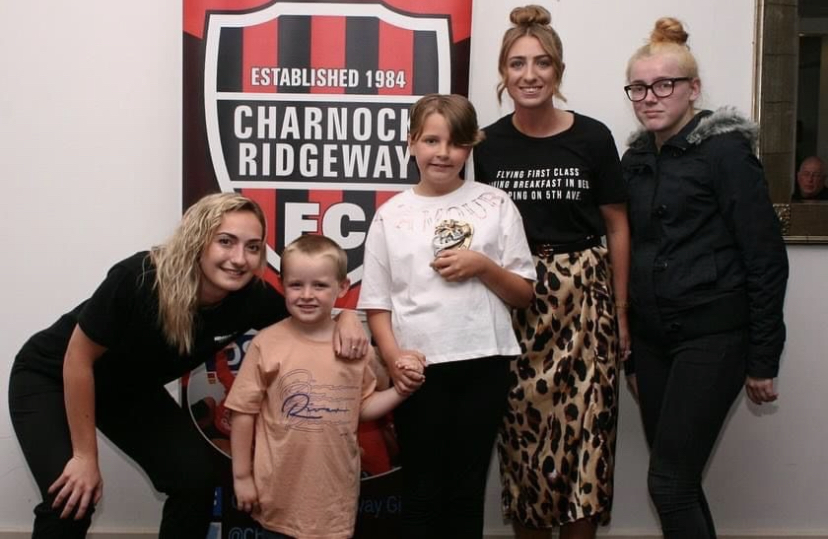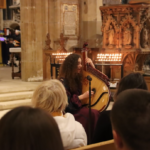Former Sheffield United player Maddy Cusack’s early death at 27 has spotlighted the ongoing struggle which still dominates women in football. The pressure of the game is growing but the money in the game is not.
Maddy’s family have criticised the “half-baked” nature of the women’s game. Players have no choice but to work multiple jobs due to the lack of funding for salaries, equipment and facilities.
There has been an increasing demand for the women’s game after the 2022 Euros, but the lack of commitment from clubs for the women’s game, shows the stark contrast between the women and men’s game.
Maddy’s brother, Richard Cusack, 29, spoke out on the pressures his sister faced during her career. He said: “Women don’t get paid enough for the effort they put in. They’ve got to find a way of making the balance work in women’s football.
“What you’re asking players to do at the moment is live as a full-time, elite, professional athlete by eating, training, and then playing on a Sunday. You’re going out all day Sunday and then players have got to get up for work on a Monday morning and with some away games it’s a weekend-long event as well.
“We have got to find a way of making this work for everyone. At the moment, it feels a little bit half-baked.”
Mr Cusack emphasised the difficulty for players to fully commit to playing football when a risk of injury one game could impact their full-time job.
Maddy’s mum, Deborah Cusack, 55, claims her daughter, who also played for the Lionesses, was “broken by football”. She told the BBC: “Maddy worried about her career in football. Because football, to her, was everything.
“At Sheffield United, last year their players were part-time, which means that they all had full-time jobs and trained three times a week. They often travelled on a Saturday to play on a Sunday, for minimal amounts of money. I think Madeline was on £6,000 a year, last year, to play football.”
Mrs Cusack, from Horsley, Derbyshire, spoke to the Sheffield Wire about a campaign for Maddy to participate in the FA mixed gender trials held across the country, while she was still in secondary school. Unfortunately for Maddy the campaign was unsuccessful despite backing from “every manager and every team”.
Olivia Cusack, 24, explained her sister had a huge ambition to develop opportunities for young women who were pursuing football careers.
She said: “I remember at clubs she’d been in, some female clubs were completely separate from the men’s and she could never get her head around why they weren’t working together. It wasn’t just funding, but equipment too, and even general relationships between the men and the women. Why was it not more merged?”
After moving to Sheffield United, Maddy noted men and women were gradually integrated which Ms Cusack explained was good for Maddy as the absence of a gendered hierarchy allowed all the players to learn and progress more.
She said: “I think she wanted a level playing field for both men and women. She wanted young girls to be able to achieve what the men have in a way, or even, the females that are in the Euros now. I think she just wanted to make it not so difficult for women to be able to achieve in football and get as much out of the sport.”
The Sheffield Wire’s campaign last May on the retention of teenage girls in football showed a large spike in girl’s interest in football as well as the challenges the girls faced.
Data from Sports England showed that 777,000 girls at the end of the 2021 school year played organised football and a 200,000 increase in the numbers of girls playing informally.
According to FIFA, there are over 29 million women and girls playing football globally, which will be expected to increase to 60 million by 2026.
In school, Maddy participated in the Sports England’s ‘This Girl Can’ campaign, which aimed to challenge stereotypes of girls in sport.
Maddy became known as “Miss Sheffield United” and continued to encourage girls to play football. Throughout her career she participated in various events including multiple visits to Charnock Ridgeway Girls FC.
Olivia, social media manager for Derby Runner, who lives in Horsley, said: “The young girls and parents I spoke to, they believe it’s really difficult for girls teams to actually have access to equipment or places where they can carry out training sessions.
“A lot of the time, it’s already kind of reserved or bought for boys, men’s, teams. The priority is not the same for females.”
Hana Bhatia, 14, saw Maddy Cusack as a role model for her own pursuit into a football career.
She said: “There’s still stereotypes. I feel like getting on to a team is a lot more difficult for a girl than a boy, because there’s so many more divisions for the boys than for girls. I feel like boys don’t understand that girls know how to play football”.
Hana also pointed out discrepancies at a professional level. “The women only get one shirt for the entire season and the men get one every single game.”
Rachel Iball, Hana’s mother, explained: “There’s a lot more opportunities for the boys to develop and be scouted and we’ve looked for more teams for Hana. It’s just been really difficult to try and go to the next step.
“One of Hana’s friends got scouted just so easily. Whereas for girls, it’s a lot harder. And there’s less teams around. So we end up travelling all over the place to go to matches for a Doncaster, Barnsley, all over.”
Brett Hawke, Barnsley Ladies FC Chairman for the Junior and Development teams, 43, explained that there is an increased pressure from clubs investing in the women’s game for teenage girl players to be elite despite the lack of funding.
“The problem I’ve got with it is, if you read the press, you’d think there’d be a lot of money going to the women’s game because they go on about how much funding has gone into it and how it’s going to improve it”, he said.
“But when you dig into it you’ll find that the funding’s there for already established men’s clubs to bring women’s football in. So they go after that funding, bring one women’s team in, and spend the rest of the money on the men’s team.”
Mr Hawke has been involved in the women’s game for seven years but was originally from the men’s football background.
The financial constraint and overshadowing of the women’s game, as Mr Hawke explained, has risen with the introduction of the UEFA Financial Fair Play Regulations to clubs which has further limited their spending.
He said: “For me there should be a special kind of fund that is specifically for the women’s game and it shouldn’t be included in men’s Financial Fair Play Regulations, it should be rolled out to the women’s game and it’s got to start out at the grassroots.
“Because some of the facilities that we have to play on, if it were boys they would not be playing on that.”
As the number of women in football continues to grow, so does the financial pressure. This reinforces the importance of The Maddy Cusack Foundation that aims to provide funding and opportunities for young girls in their football careers.





























